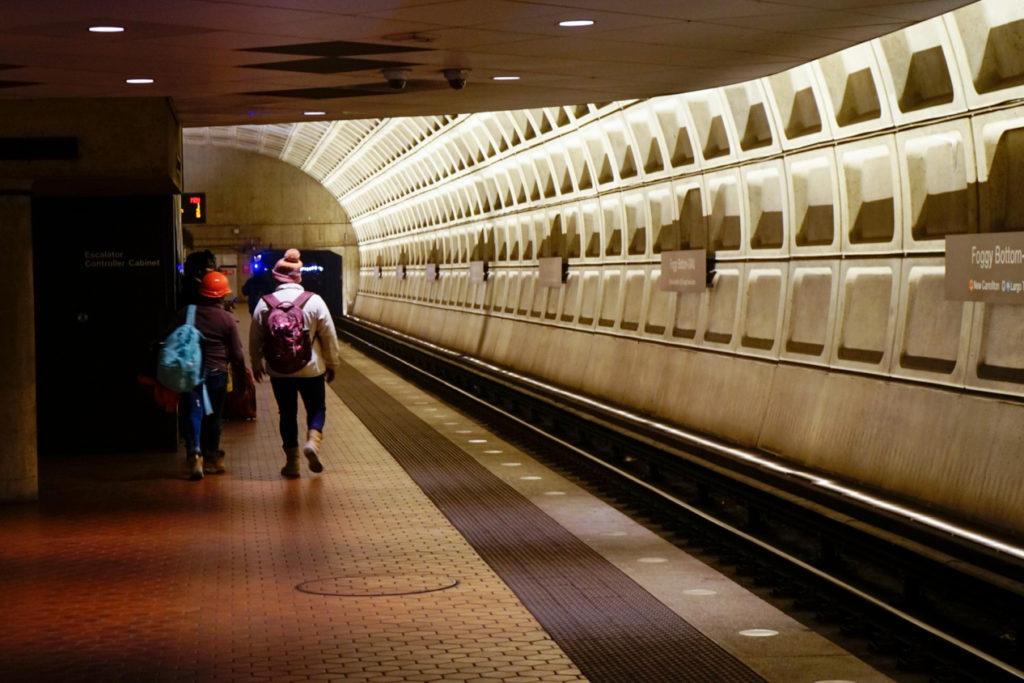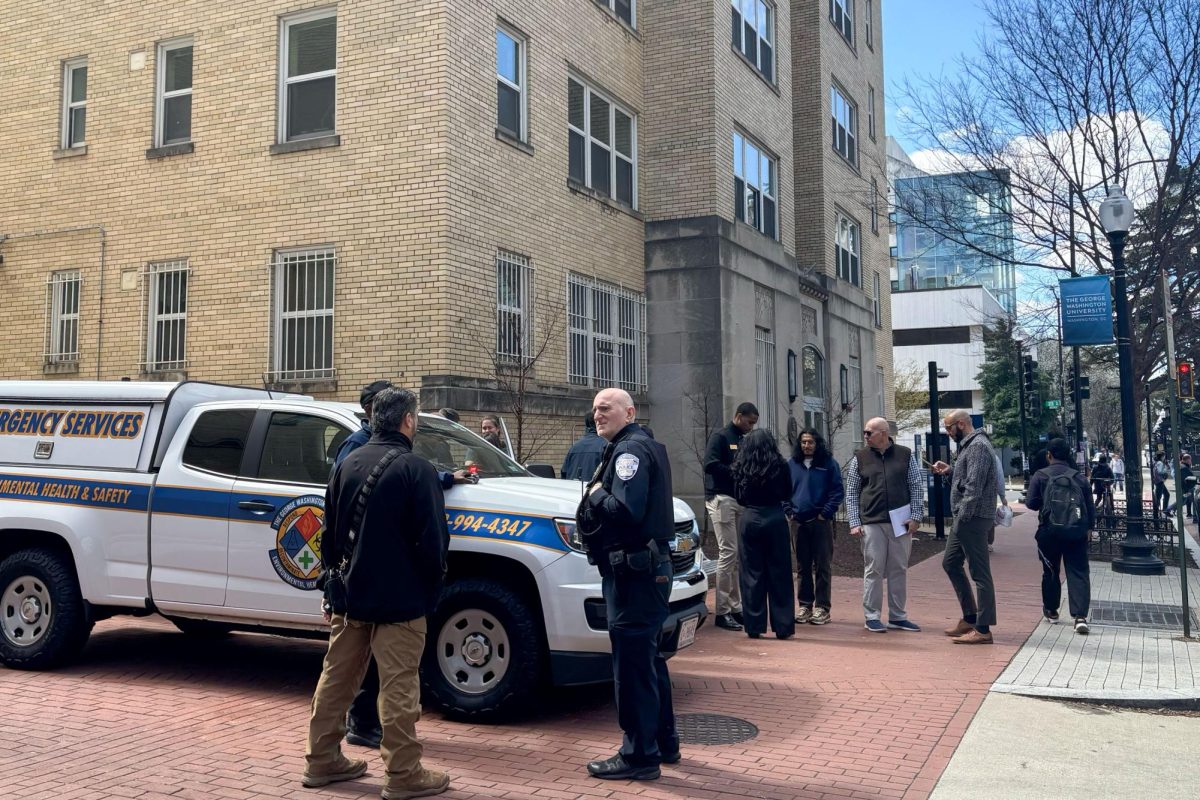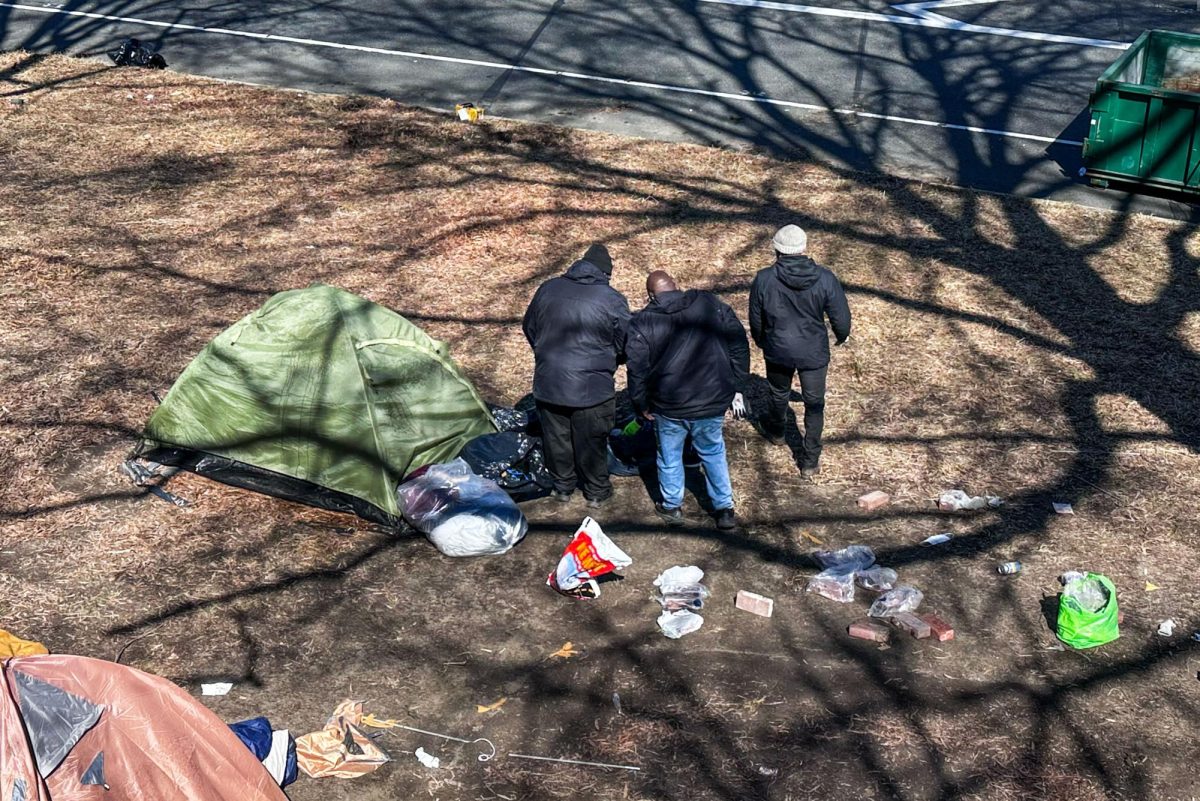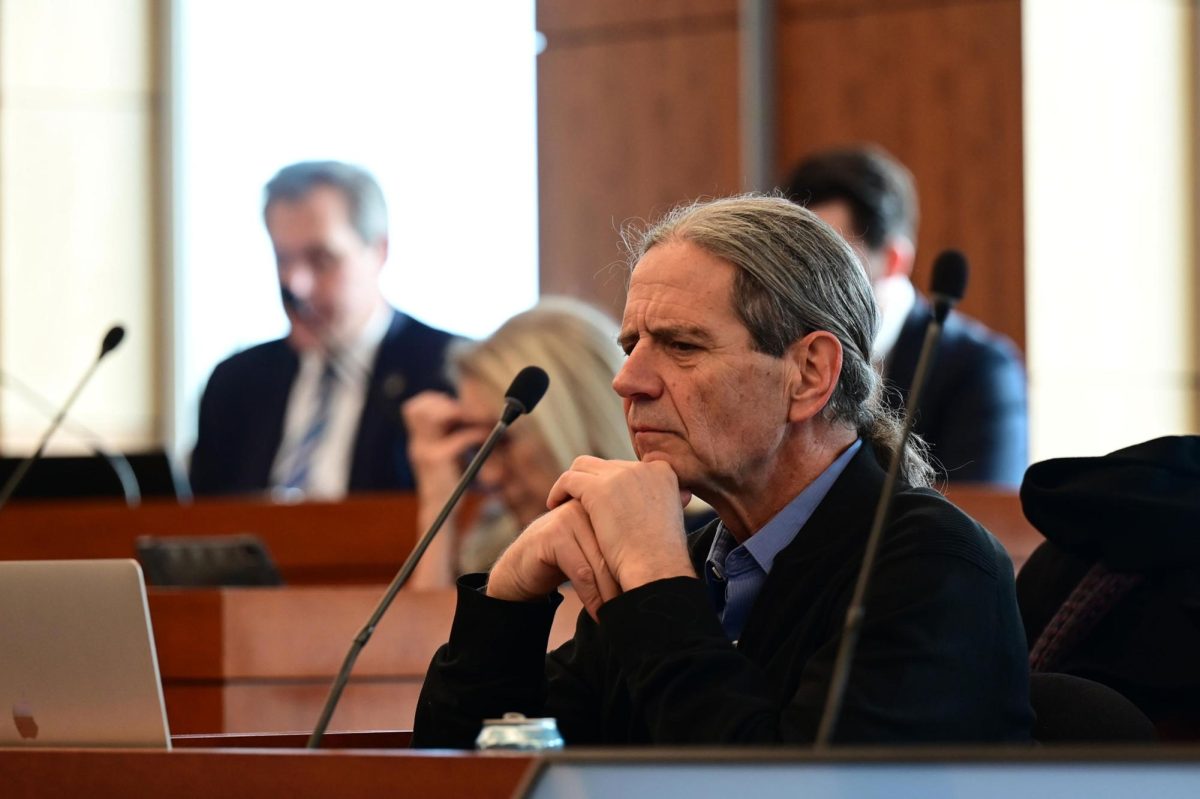Washington Metropolitan Area Transit Authority officials plan to dodge devastating service cuts for now, thanks to the agency’s $610 million in funding from the federal COVID-19 stimulus package.
After proposing a bundle of service cuts late last year to plug a budget fallout resulting from the COVID-19 pandemic, Metro officials said they plan to resume regular service in 2021. The funding will help the agency avert cuts they planned to implement in fiscal year 2022, like eliminating weekend service and shutting down 19 stations, but local leaders said they may need to revisit the cuts in the future without more federal funding.
Metro board members said they plan to delay any potential budget cuts through 2021, but they might start scaling back service in January 2022 without any further relief from the federal government. President-elect Joe Biden’s recently outlined $1.9 trillion stimulus package allots $20 billion for public transportation – a potential beacon for WMATA’s budget outlook, DCist reported.
Local leaders said avoiding the complete elimination of rail and bus service in the future will help save commuters from losing a local transportation asset in Foggy Bottom and D.C.
Senior Yannik Omictin, a member of the Foggy Bottom and West End Advisory Neighborhood Commission, said he hopes Metro officials weigh “equity” and “inequality” when deciding how to maintain service around the D.C. area, including areas with fewer Metro stops than in Ward 2.
“It just goes without saying that anyone in the community that’s already vulnerable is made even more vulnerable by reductions in service,” he said.
Omictin said WMATA officials should include local ANCs in budget talks for FY 2022, even though it’s unusual for the agency to factor neighborhood voices in its decision-making process, typically compounded with state and city leaders.
Metro officials reinstated the collection of Metrobus fares last month to start clawing back funds for the agency’s budget deficits – a measure Omictin said has disadvantaged low-income residents who commute as service industry employees. He said Metro officials should focus on maintaining Metrobus service to account for those employees’ transit access.
Omicitin, who supports implementing a discounted student Metro pass, said while he still plans on “getting transit as close to free as possible for as many folks as possible,” he’s “not super optimistic” about passing the initiative in the near future given WMATA’s financial fallout during the pandemic.
John George, the president of the Foggy Bottom Association, said Metrorail and Metrobus are assets to people commuting to and from the local neighborhood near campus. He said he’s “thankful” for the federal stimulus package because it alleviates worry from community members who rely on public transportation.
“Metrorail and Metrobus are vital to the Foggy Bottom and West End communities,” he said. “They serve a significant purpose in transporting our residents to wherever they’re going, as well as members from the metropolitan area coming into Foggy Bottom.”
He said officials should avoid completely eliminating any area of the agency’s service and instead direct any necessary cuts to a reduction of hours – still a “distressing” measure but one that would keep weekend service, rail stops and bus routes from shutting down. Metro officials shuttered 19 stations during the first outbreak of COVID-19 in D.C. in March.
“If it needs to operate under reduced hours, I understand that,” he said. “If it needs to operate under reduced frequency, I think that’s an unfortunate consequence, but let’s face it – I think we’re all having to sacrifice some things.”
WMATA spokesperson Ian Jannetta deferred an initial request for comment to Thursday’s board meeting, where members discussed budget planning for FY 2022.
Transportation experts said the Metro should try limiting cuts as much as possible and execute necessary service reductions that will bear minimal weight on low-income commuters.
Nigel Wilson, a professor emeritus of civil engineering at the Massachusetts Institute of Technology, said WMATA officials should use its federal aid “as a bridge” to revamped service standards and economic redevelopment.
“When ridership comes back, I think they really have to think of this as the federal assistance, providing a bridge to maintain service that will be needed in the medium-to-long run and avoid the pain and suffering for people who depend on public transport,” he said.
Wilson, who specializes in research on urban transportation systems, said there is a “misperception” about the danger of using a transit system during the COVID-19 pandemic, and WMATA officials should try convincing local commuters of the transit system’s safety. WMATA reports daily ridership numbers and employee COVID-19 cases but also pledges a “health and safety commitment” and publicizes cleaning protocol amid the pandemic.
Other major transit agencies in cities like New York and Boston publish COVID-19 health guidelines on their website, including safety protocol and sanitation efforts.
“It’s important that they debunk the myths that are going around that public transport is a significant spreader of infection,” Wilson said. “I don’t believe that’s true, again, as long as people wear masks and as long as the density isn’t super high.”
He said agencies across the country will recover, but their ridership might take a year or two to fully return to normal levels.
Baruch Feigenbaum – the senior managing director of transportation policy at the Reason Foundation, a libertarian think tank – said canceling low-demand bus routes and reducing rail service for commuters who may still have a car would be the best ways for WMATA to save money. He said ridership could be permanently reduced because of the pandemic while private rideshare businesses could rise in popularity.
He added that contracting services to private businesses could help the agency limit costs and address budget shortfalls.
“Transit agencies are going to have to become more creative, so that could be contracting out service, that could be doing a bunch of different things, but I don’t think they can keep operating the way most of them have been operating for the past 50 years now,” he said.
WMATA will hold a final vote on the FY 2022 budget in April.








